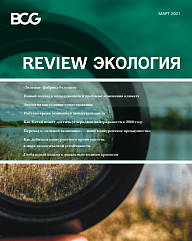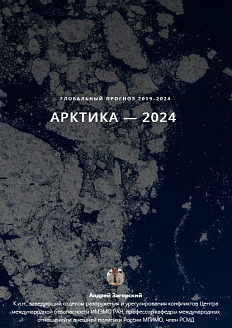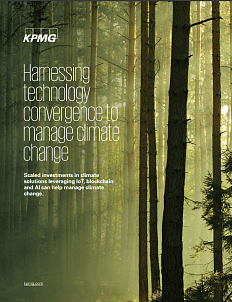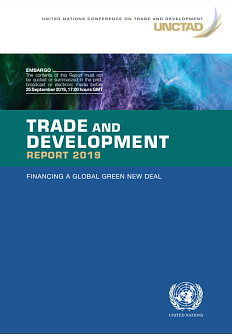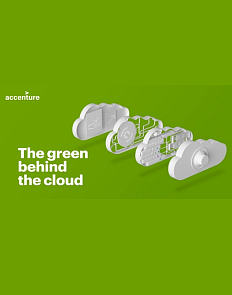The review, prepared by BCG, collects materials on the environment, climate change issues and their possible solutions, as well as other environmental challenges.
The Roscongress Foundation presents the salient points of the publication accompanied by fragments of broadcasts of relevant panel discussions from the business programme of international events held by the Roscongress Foundation.
Dynamic actions to solve environmental issues should begin today and be undertaken both by individuals and by business, government and investors together.
The study notes that the largest carbon emitter, China, which makes 20% of global emissions annually, has set the most ambitious targets to achieve carbon neutrality by 2060 (to limit global warming by 1.5 °C). But despite the fact that many countries are already taking significant steps to reduce emissions, work with climate change and the environment, these actions, according to the publication, are not enough to solve the problem. The authors of one of the articles in the collection of works compare the climate issues and efforts to solve them with the coronavirus pandemic — it is growing as rapidly as the climate is growing exponentially (the number of infected and CO2 emissions, respectively), and the response to the problem is still limited and requires everyone to join structures.
On average, humanity annually consumes resources that are almost twice the capacity of the Earth. The study highlights that to solve environmental issues, it is necessary to act immediately and for this all parts of society must be involved. However so far, the review states a low probability of a globally coordinated government response to climate change, although governments are well placed to play a central role in disseminating environmental initiatives and regulating the industries most critical to achieving the Paris Agreement goals. But in this process, state bodies may face opposition from the society. For example, end consumers are not willing to buy more eco-friendly products due to higher prices. It is also noted that such resistance may be due to the fact that economically disadvantaged population is more concerned about the economic situation in the country than about environmental problems. It is stated that in regions where climate change is already significantly tangible, citizens, on the contrary, put pressure on the authorities to adopt environmental initiatives (for example, in California).
Besides, the leverage is not only with the state, but also with investors: the ability to increase the capital value of specific companies, as well as the influence among company leaders, which they can use to drive changes in business models towards environmental ones. At the same time, people themselves can choose not only more eco-friendly products, but also more eco-friendly employers. The survey notes that already now, about 40% of millennials have chosen a job, guided by the «eco-friendliness» of employer (according to a 2019 survey in the USA). The research says that industrial companies, in turn, need to take measures that are aimed at decarbonizing their operations and implement them as an integral part of their development strategy. Accordingly, coordination of actions and cooperation of all structures of society and the state can help to adopt healthy environmental habits and come closer to solving environmental and climate issues.
It is worthwhile to say that the lack of collaboration and cooperation of actions between diverse groups with different interests, as well as the lack of a systematic approach to risk assessment, impede action on issues related to crises arising from the shortage of fresh water.
The circular economy should become a critical link in the chain of actions aimed at solving environmental issues.
The study points out that, certainly, it is necessary to take measures to reduce the amount of waste, but responsible consumption, as well as the formation of a circular economy, can become the most important tools in the fight against environmental problems. By creating a circular chain, it is possible to solve not only the problems of pollution, but also the overexploitation of natural resources through their restoration and continuous circulation.
But, unfortunately, the current level of development of the circular economy is insufficient: its share in the world economy is on average 8.6%. And in order to stay within the ecological capabilities of the planet, it is necessary to increase this figure to 50–70%. At the same time, the study provides a number of arguments in favor of the formation of a circular economy, and not only environmental, but also economic ones.
Thus, if companies do not start using recyclable materials, they may face a shortage of resources, which will slow down production processes and hinder their operations in the medium and long term. As a result, it is more profitable for companies to start using recyclable materials as early as possible. Moreover, circular economy initiatives can also strengthen customer relationships, create new market opportunities, reduce risks, increase worker motivation, and make supply chains more resilient to adverse events. Importantly, these initiatives can also improve the profitability of companies. This was borne out by a recent BCG survey of senior executives, with 53% of respondents. The review notes that in order to become part of the circular economy, firms will have to undergo a complete overhaul of their business models.
For more information, see the special sections of the Roscongress Foundation Information and Analytical System: Environment, Sustainable Development, Climate Change, that are devoted to environmental issues and possible ways to solve them, as well as sustainable development in the face of climate change.


